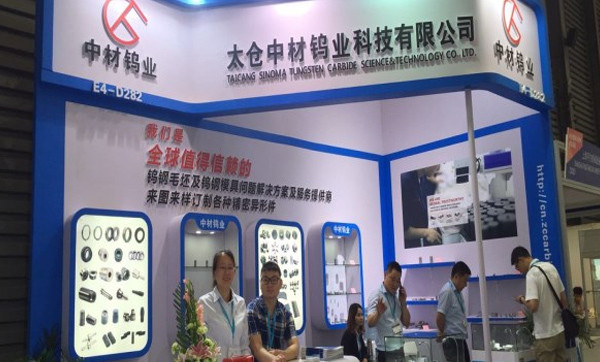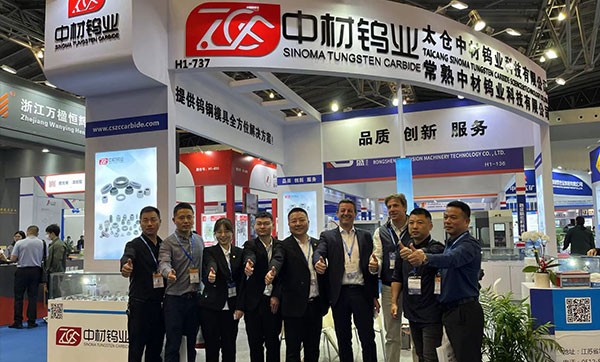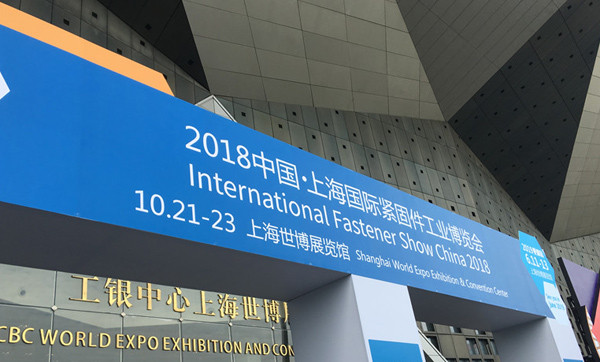In the high-precision world of manufacturing, the quality of a tool is often determined long before its first cut. For producers of tungsten carbide molds and tooling—components critical to industries from aerospace to medical devices—the environment of their creation is not just a background detail; it is a fundamental pillar of quality, performance, and profitability. Among the most critical environmental controls is the implementation of a dust-free workshop.
Moving beyond a simple clean room, a dust-free workshop is an engineered space designed to eliminate airborne particulate contamination at every stage of production. For tungsten carbide, a material celebrated for its extreme hardness and wear resistance but notorious for its sensitivity during sintering, this controlled environment is transformative.
Here's how a dust-free workshop delivers profound benefits to every facet of tungsten carbide mold production.
1. Flawless Surface Finish and Dimensional Integrity
Tungsten carbide molds are used for processes like precision stamping, forging, and injection molding, where the mold's surface finish is directly imparted onto the final product. Any microscopic contaminant—a speck of dust, a stray hair, or foreign debris—embedded into the mold's surface during the green state (pre-sintering) will create a defect.
· The Problem: In a conventional workshop, airborne particles can settle on the delicate, unsintered "green" parts during handling, machining, or inspection. During the high-temperature sintering process, these contaminants burn away or react with the carbide, leaving behind pits, voids, or inclusions.
· The Solution: A dust-free environment with HEPA/ULPA filtration and positive air pressure ensures that the air surrounding the green parts is virtually free of these particulates. This results in molds with exceptionally smooth, defect-free surfaces right out of the furnace, minimizing or eliminating the need for costly and time-consuming post-sintering polishing.
2. Enhanced Sintering Consistency and Material Properties
The sintering process is where tungsten carbide achieves its legendary properties. The precise chemistry and microstructure of the material are paramount. Contamination disrupts this.
· The Problem: Airborne dust, especially silica (from regular concrete walls and floors) or other organic matter, can introduce foreign elements into the carbide matrix. This can lead to inconsistent densification, the formation of brittle phases, carbon level fluctuations, and ultimately, weak points that compromise the mold's structural integrity and service life.
· The Solution: A sealed, dust-free workshop prevents external contaminants from interfering with the material's chemistry. This ensures a uniform and predictable sintering outcome, batch after batch, yielding molds with superior, consistent mechanical properties: higher hardness, better transverse rupture strength, and improved wear resistance.
3. Dramatic Reduction in Production Yield Loss
The financial impact of a single scrapped tungsten carbide mold is significant. The material costs are high, and the machining and sintering processes are energy-intensive.
· The Problem: Surface defects or internal flaws caused by contamination often only become apparent after sintering—the most value-added step in the process. Discovering a critical flaw at this stage means the entire investment in material, machining time, and energy is a total loss.
· The Solution: By controlling the primary cause of these defects (airborne particulates), a dust-free workshop drastically reduces the rate of rejection and rework. This directly boosts production yield, improves resource utilization, and protects profit margins.
4. Extended Tool Life and Reliability for the End-User
The benefits of a dust-free production process extend far beyond the factory floor, delivering tangible value to the customer.
· The Problem: A mold with a microscopic surface pit or an internal inclusion is a point of stress concentration. In application, under high cyclic loads, a crack can originate from this flaw, leading to premature failure, unplanned downtime, and production delays for the customer.
· The Solution: Molds produced in a contaminant-free environment are inherently more reliable. Their flawless structure allows them to withstand extreme pressures and abrasion for longer periods. This translates to longer service life, greater consistency in the customer's production process, and enhanced reputation for the mold manufacturer as a provider of premium, dependable tooling.
5. A Safer and More Professional Working Environment
The commitment to a dust-free workshop also has important operational benefits.
· Operator Health: While tungsten carbide in its solid state is inert, the fine dust generated during grinding (of sintered parts) can be a respiratory irritant. A dust-free workshop requires robust dust extraction systems at the source (e.g., at grinding machines), protecting operators from airborne particles and maintaining cleaner air throughout the facility.
· Culture of Quality: The discipline required to maintain a dust-free environment—through gowning procedures, strict cleanliness protocols, and organized workspaces—fosters a culture of precision and attention to detail among employees. This mindset inevitably carries over into every aspect of production, elevating overall quality standards.
Conclusion: Not an Expense, but a Strategic Investment
For manufacturers of tungsten carbide molds, building and maintaining a dust-free workshop is not merely a facilities upgrade; it is a core strategic investment in product excellence. It is the unseen advantage that ensures dimensional perfection, material consistency, and ultimate reliability.
In a competitive market where failure is not an option, controlling the invisible—the dust in the air—is what allows a manufacturer to produce the visible: flawless, high-performance tungsten carbide molds that set the industry standard. The question is no longer if a company can afford to implement such controls, but if it can afford not to.
Since its inception, ZCCF Tungsten Carbide has always maintained a dust-free production environment to ensure product quality to the greatest extent. We welcome all friends to visit our factory for guidance.




